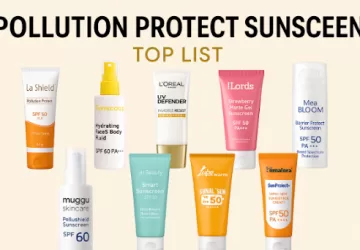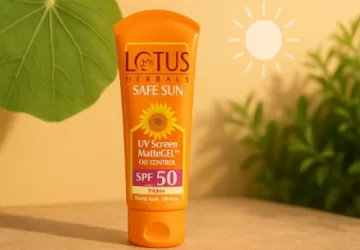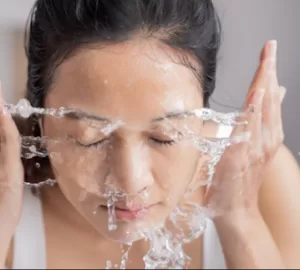The beauty industry is undergoing a profound transformation driven by technology. From AI-powered skincare diagnostics to virtual makeup try-ons, beauty tech is reshaping how consumers experience personal care. Emerging technologies like augmented reality (AR), artificial intelligence (AI), and 3D printing are enabling personalized, efficient, and immersive beauty experiences. As the demand for sustainable and tech-driven solutions grows, brands are leveraging smart devices and data analytics to meet consumer expectations. The integration of technology in beauty is not just enhancing product effectiveness but also revolutionizing how we perceive self-care. With advancements accelerating, understanding the future of beauty tech is crucial for both consumers and industry professionals. Let’s explore the latest innovations and trends shaping this dynamic field.
What is Beauty Tech?
Beauty tech is the intersection of technology and beauty, focusing on enhancing personal care experiences through innovation. This multidisciplinary approach leverages cutting-edge technologies like AI, AR, VR, and IoT to create smart beauty solutions. From skincare devices that analyze your skin’s moisture levels to apps that customize makeup looks, beauty tech is making self-care more personalized and data-driven.
Beauty tech aims to address consumer demands for convenience, personalization, and efficacy. By integrating science with creativity, it’s redefining product development, retail experiences, and at-home beauty routines. As the industry evolves, beauty tech is becoming a key player in both professional and consumer markets.
Future Trends in the Beauty Industry
Staying ahead in the beauty sector means keeping up with the latest tech trends. Here are the most promising developments:
1. AI-Powered Skincare Solutions
Artificial intelligence is transforming skincare by offering personalized product recommendations based on individual skin conditions. Brands like L’Oréal and Olay are leading the way with AI-based skin diagnostics that assess hydration, elasticity, and skin tone through mobile apps.
2. Augmented Reality Makeup Applications
Virtual try-on technology is becoming increasingly popular. AR apps, such as Sephora’s Virtual Artist, allow users to test makeup shades without physically applying them, saving time and reducing product waste.
3. Smart Beauty Devices
Connected devices like FOREO’s Luna 3 use AI to deliver customized cleansing routines, analyzing your skin’s needs in real time. These gadgets track improvements, providing data to optimize your skincare regimen.
4. Custom Formulations and 3D Printing
Brands are using 3D printing to create personalized skincare solutions, from face masks to serum capsules. This bespoke approach caters to unique skin concerns, enhancing product efficacy.
5. Sustainable and Eco-Friendly Innovations
Beauty tech is incorporating eco-friendly packaging and waterless formulations with consumers prioritizing sustainability. Refillable smart devices are also emerging to reduce waste.
New Technology in the Beauty Industry
The beauty sector is rapidly adopting advanced technologies to meet modern consumer expectations. Here are some groundbreaking innovations:
AI and Machine Learning
AI algorithms are being used to formulate products based on genetic skin profiling. For example, PROVEN Skincare uses data from over 8 million customer reviews to create tailored skincare routines.
3D Skin Printing
L’Oréal’s Perso device uses 3D printing to blend personalized serums and lipsticks on demand, analyzing environmental factors like UV exposure.
Virtual Dermatology Consultations
Teledermatology apps utilize AI to analyze skin concerns and recommend treatment plans, making professional skincare more accessible.
Blockchain for Ingredient Transparency
Consumers are increasingly interested in knowing the origins of their beauty products. Blockchain technology enables transparent supply chains, ensuring ingredient authenticity.
Voice-Activated Beauty Assistants
Smart speakers like Amazon Echo now offer beauty advice through integrated apps, guiding users on skincare routines and product applications.
How Will Technology Change Cosmetology in the Future?
Technology is not only reshaping consumer experiences but also transforming professional cosmetology practices.
1. Advanced Skin Diagnostics
Dermatologists are adopting AI-powered tools to assess skin conditions more accurately. Devices like SkinCeuticals’ D.O.S.E. use real-time data to create customized serums, enhancing treatment outcomes.
2. Virtual Reality Training for Cosmetologists
VR is being utilized for hands-on training, allowing cosmetologists to practice techniques in a virtual salon environment. This immersive learning approach enhances skill development.
3. Automated Beauty Services
Robotic devices are now capable of performing tasks like hair washing and scalp analysis, minimizing human error and improving service consistency.
4. Personalized Beauty Experiences
Salons are integrating AR mirrors that suggest haircuts based on face shape and current trends, enhancing client satisfaction.
5. Data-Driven Beauty Consultations
Smart mirrors in salons collect data on skin texture and elasticity, guiding beauticians in selecting the most suitable treatments.
Why Beauty Tech Matters for Brands and Consumers
Beauty tech is not just a trend; it’s a fundamental shift in how we approach skincare and cosmetics. For brands, it means creating products that meet the modern demand for personalization and sustainability. For consumers, it means more control over their beauty routines, making self-care both effective and enjoyable.
Impact of Beauty Tech on Retail Experiences
Retail spaces are transforming into tech-driven hubs where customers can explore products virtually. AR-powered mirrors and AI-driven kiosks enable a more interactive shopping experience, offering tailored recommendations based on real-time skin analysis.
The Role of Data Analytics in Beauty Tech
Data is at the heart of modern beauty solutions. Brands are collecting consumer data to predict trends, customize products, and enhance customer loyalty. By analyzing skin type, climatic conditions, and lifestyle factors, companies can create hyper-personalized beauty routines.
Embracing the Future: Key Takeaways
- Personalization is Key: Beauty tech caters to individual needs, offering bespoke solutions.
- Data-Driven Decisions: Real-time analytics optimize skincare routines.
- Sustainability Matters: Tech-driven solutions prioritize eco-friendly practices.
- Consumer Engagement: AR and AI create more engaging retail experiences.
- Skill Enhancement: Cosmetology practices are evolving with VR and automated tools.
Conclusion
The future of beauty tech is promising, offering unprecedented innovation and personalization. As technology continues to advance, both consumers and professionals will benefit from smarter, more efficient beauty solutions. By staying informed and embracing these innovations, we can look forward to a more sustainable, inclusive, and tech-savvy beauty industry.
FAQs
Beauty tech involves integrating advanced technologies like AI and AR into beauty and personal care products to enhance user experience.
Emerging trends include AI-powered skincare, AR makeup try-ons, and sustainable tech-driven solutions.
It’s improving diagnostic accuracy, automating treatments, and enhancing training through VR.
L’Oréal, Sephora, and FOREO are at the forefront with AI-powered tools and smart devices.
AI helps analyze skin conditions, recommend products, and create personalized beauty routines.
Yes, AR mirrors and smart kiosks offer interactive, personalized shopping experiences.







